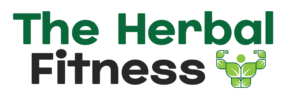As more individuals embrace a vegan lifestyle for its ethical, environmental, and health benefits, understanding how to maintain a balanced and nutrient-rich diet is paramount. While a plant-based diet offers a bounty of vitamins and minerals, there are specific nutrients that are less abundant in vegan foods. This is where the strategic use of dietary supplements can play a crucial role, ensuring that those following a vegan diet continue to thrive and meet all their nutritional needs.
The Importance of Protein in a Vegan Diet
Protein is often a focal point of concern when it comes to vegan nutrition. While there are plenty of plant-based protein sources available, such as legumes, nuts, seeds, tofu, and tempeh, some individuals might find it challenging to meet their protein needs through food alone, especially those with higher requirements such as athletes or those with specific health conditions. This is where protein powders, such as those derived from peas, rice, or hemp, can be extremely helpful. They are not only convenient but also can be incorporated easily into various meals and snacks.
The Critical Role of Vitamin B12 and Iron
Vitamin B12 is crucial for nerve function and the production of DNA and red blood cells. It is naturally found in significant amounts only in animal products, which poses a unique challenge to vegans. B12 deficiency can lead to serious health issues such as anemia and neurological damage. Therefore, B12 supplements are often recommended for those on a vegan diet to ensure they receive this vital nutrient.
Iron, which is vital for creating healthy blood cells and transporting oxygen throughout the body, is another nutrient that vegans need to be mindful of. Plant-based iron sources are different from animal-based sources and are less easily absorbed by the body. This is where iron supplements can be beneficial, particularly for those who might be prone to anemia.
Here are two additional paragraphs that expand on other relevant nutrients and considerations for a vegan diet:
Importance of Zinc and Selenium
Zinc is another mineral that’s often overlooked in vegan diets but is essential for immune function, DNA synthesis, and cell division. Plant sources of zinc include legumes, nuts, seeds, and whole grains, but the bioavailability from these sources can be limited due to phytates, which inhibit zinc absorption. Supplementing with zinc can help vegans achieve their daily requirements and avoid deficiency. Similarly, selenium, which is crucial for thyroid function and antioxidant defense systems, is found predominantly in Brazil nuts and a few other plant-based sources. However, the selenium content of soil, and thus plant foods, can vary dramatically depending on geographic location, making supplementation a reliable way to ensure adequate intake.
Additional Nutrients for Vegan Diets
Iodine is a critical nutrient for thyroid function and metabolism regulation. The primary source of iodine for many people is iodized salt or seafood, so vegans can benefit from incorporating a seaweed-based supplement or iodine drops to maintain sufficient levels. Another consideration is choline, which is important for liver function, normal brain development, and nerve function. While it can be found in cruciferous vegetables, nuts, and seeds, the amounts in these plant sources may not suffice for optimal health, prompting the need for supplementation.
Filling the Omega-3 Fatty Acids Gap
Omega-3 fatty acids are important for cardiovascular health, brain function, and overall inflammation reduction. Since the primary sources of EPA and DHA (types of omega-3) are fish and other seafood, vegans can turn to algae-based supplements as an effective alternative to fish oil supplements, ensuring they receive these essential fats without compromising their dietary principles.
The Discreet Efficacy of the Thrive Patch
Among the myriad of supplement options available to vegans, the Thrive Patch by Le-Vel stands out for its unique approach to wellness. This innovative product discreetly delivers nutrients directly through the skin, offering a simple and efficient method to manage weight, enhance cognitive performance, and increase energy levels—all aligned with vegan values and lifestyle.
The Benefits of Calcium and Vitamin D Supplements
Calcium and vitamin D are crucial for bone health. Vegans need to be particularly cautious about these nutrients, as many of the rich sources are non-plant based. Fortified plant milks and juices can provide some of these essential nutrients, but supplements might be necessary to achieve the recommended daily intake, especially for vitamin D, which is naturally obtained from sunlight exposure.
Antioxidants for Anti-Aging and Immune Support
Antioxidants like vitamins C and E, selenium, and carotenoids play significant roles in preventing oxidative stress and supporting immune function. These nutrients can be found in various fruits and vegetables, but supplements can help ensure that vegans reach optimal levels, especially those with limited diets or specific nutritional needs due to health issues.
Conclusion
For those adopting a vegan lifestyle, the world of supplements offers a practical solution to ensure all nutritional needs are met. From proteins and omega-3s to essential vitamins and minerals, the careful inclusion of supplements can help fill any dietary gaps, supporting health and wellness without compromise. By choosing the right supplements, such as the innovative Thrive Patch for continuous nutrient support, vegans can maintain a balanced diet and vibrant health, aligning their nutritional intake with their ethical and health goals.




